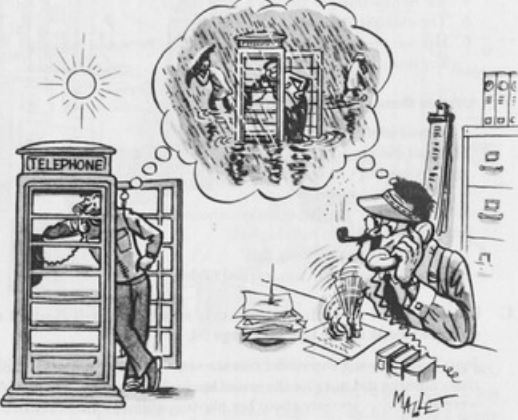

Grammar


Tenses


Present

Present Simple

Present Continuous

Present Perfect

Present Perfect Continuous


Past

Past Simple

Past Continuous

Past Perfect

Past Perfect Continuous


Future

Future Simple

Future Continuous

Future Perfect

Future Perfect Continuous


Parts Of Speech


Nouns

Countable and uncountable nouns

Verbal nouns

Singular and Plural nouns

Proper nouns

Nouns gender

Nouns definition

Concrete nouns

Abstract nouns

Common nouns

Collective nouns

Definition Of Nouns

Animate and Inanimate nouns

Nouns


Verbs

Stative and dynamic verbs

Finite and nonfinite verbs

To be verbs

Transitive and intransitive verbs

Auxiliary verbs

Modal verbs

Regular and irregular verbs

Action verbs

Verbs


Adverbs

Relative adverbs

Interrogative adverbs

Adverbs of time

Adverbs of place

Adverbs of reason

Adverbs of quantity

Adverbs of manner

Adverbs of frequency

Adverbs of affirmation

Adverbs


Adjectives

Quantitative adjective

Proper adjective

Possessive adjective

Numeral adjective

Interrogative adjective

Distributive adjective

Descriptive adjective

Demonstrative adjective


Pronouns

Subject pronoun

Relative pronoun

Reflexive pronoun

Reciprocal pronoun

Possessive pronoun

Personal pronoun

Interrogative pronoun

Indefinite pronoun

Emphatic pronoun

Distributive pronoun

Demonstrative pronoun

Pronouns


Pre Position


Preposition by function

Time preposition

Reason preposition

Possession preposition

Place preposition

Phrases preposition

Origin preposition

Measure preposition

Direction preposition

Contrast preposition

Agent preposition


Preposition by construction

Simple preposition

Phrase preposition

Double preposition

Compound preposition

prepositions


Conjunctions

Subordinating conjunction

Correlative conjunction

Coordinating conjunction

Conjunctive adverbs

conjunctions


Interjections

Express calling interjection

Phrases

Sentences


Grammar Rules

Passive and Active

Preference

Requests and offers

wishes

Be used to

Some and any

Could have done

Describing people

Giving advices

Possession

Comparative and superlative

Giving Reason

Making Suggestions

Apologizing

Forming questions

Since and for

Directions

Obligation

Adverbials

invitation

Articles

Imaginary condition

Zero conditional

First conditional

Second conditional

Third conditional

Reported speech

Demonstratives

Determiners


Linguistics

Phonetics

Phonology

Linguistics fields

Syntax

Morphology

Semantics

pragmatics

History

Writing

Grammar

Phonetics and Phonology

Semiotics


Reading Comprehension

Elementary

Intermediate

Advanced


Teaching Methods

Teaching Strategies

Assessment
Seeing is believing
المؤلف:
L.A Hill
المصدر:
Advanced steps to understanding
الجزء والصفحة:
56-1
9/9/2022
999

Mr. Hodges was the owner and editor of a small newspaper. He always tried to bring his readers the latest news.
One day, he received an excited telephone call from someone who claimed that he had just come through a big flood in a village up in the mountains. He described the flood in great detail, and Mr. Hodges wrote it all down and printed it in his paper that evening. He was delighted to see that no other paper had got hold of the story.
Unfortunately, however, angry telephone calls soon showed that he had been tricked, so in the next day's paper he wrote: We were the first and only newspaper to report yesterday that the Village of Green Bridge had been destroyed by a flood. Today, we are proud to say that we are again the first newspaper to bring our readers the news that yesterday's story was quite false.
A Which of these sentences are true (T) and which are false (F)? Write T or F in the boxes.
- Mr. Hodges edited his own newspaper.
- Someone telephoned that there had been a big flood.
- People who had been in the flood were angry that Mr. Hodges had written about it.
- He printed another report in his paper, repeating that there had been a flood.
- He wrote in the report that the people who had said that there had been no flood were liars.
- There had not really been a flood at all.
B Answer these questions.
- What work did Mr. Hodges do?
- What was his aim in his job?
- What news did someone give him one day?
- How did the person give him the news?
- What did Mr. Hodges do then?
- What gave him a lot of pleasure?
- How did he discover that he had been cheated?
- What correction did he print in his paper the next day?
C Put one of these words in each space.
at by for in of or out of to under with
Mr. Hodges was... his way... his office one day... the company... one of his reporters when someone offered him some information...exchange... some free advertising in his paper. ... reply ... the man's offer, Mr. Hodges suggested that he should come and discuss things at his home, as he was ... touch ... the business the man was talking about, so he could not really understand what was being offered.
... the time ... this offer, Mr. Hodges had already been informed secretly,...means... a telegram, about this matter; but... the sake ...not giving away the secret, he did not say anything to the man who was trying to sell him information... regard... the same subject. The man came to see Mr. Hodges that night, ... cover ... darkness.
 الاكثر قراءة في Advanced
الاكثر قراءة في Advanced
 اخر الاخبار
اخر الاخبار
اخبار العتبة العباسية المقدسة

الآخبار الصحية















 قسم الشؤون الفكرية يصدر كتاباً يوثق تاريخ السدانة في العتبة العباسية المقدسة
قسم الشؤون الفكرية يصدر كتاباً يوثق تاريخ السدانة في العتبة العباسية المقدسة "المهمة".. إصدار قصصي يوثّق القصص الفائزة في مسابقة فتوى الدفاع المقدسة للقصة القصيرة
"المهمة".. إصدار قصصي يوثّق القصص الفائزة في مسابقة فتوى الدفاع المقدسة للقصة القصيرة (نوافذ).. إصدار أدبي يوثق القصص الفائزة في مسابقة الإمام العسكري (عليه السلام)
(نوافذ).. إصدار أدبي يوثق القصص الفائزة في مسابقة الإمام العسكري (عليه السلام)


















